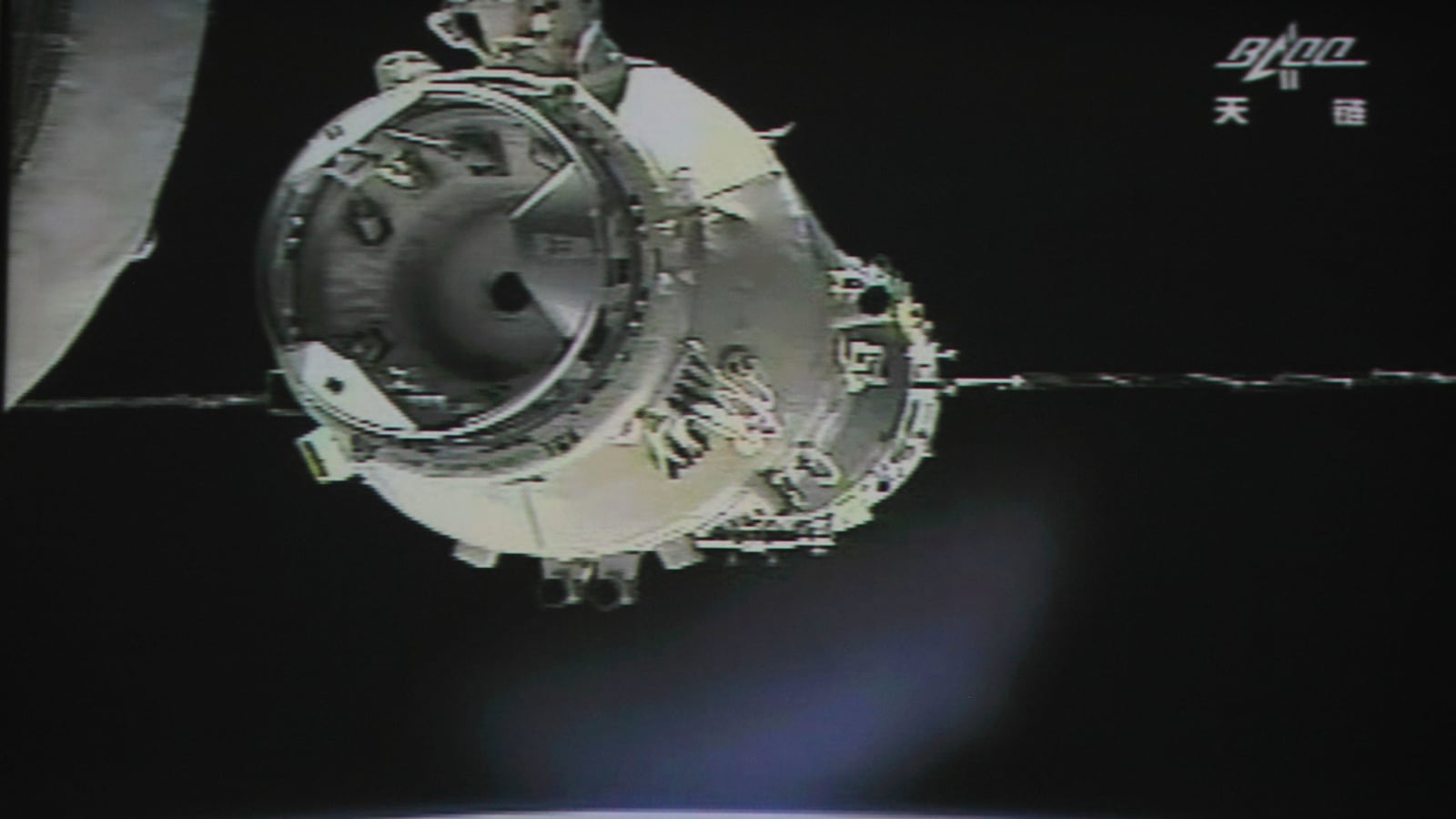China’s space program appeared to confirm last week what many have suspected for months: that China has lost control of its space station, Tiangong-1, and does not know when or where it will land.
“Based on our calculation and analysis, most parts of the space lab will burn up during falling,” Wu Ping, deputy director of the country’s manned space program, was quoted as telling Xinhua, a state media outlet.
Xinhua then paraphrased Wu as calling the falling spacecraft “unlikely to affect aviation activities or cause damage to the ground” when it crash lands “in the latter half of 2017.”
Experts say the announcement was not reassuring.
“You really can’t steer these things,” Jonathan McDowell, an astrophysicist at Harvard, told The Guardian. “Even a couple of days before it re-enters we probably won’t know better than six or seven hours, plus or minus, when it’s going to come down. Not knowing when it’s going to come down translates as not knowing where its going to come down.”
McDowell said the debris from the space station that doesn’t disintegrate in the Earth’s atmosphere is unlikely to cause “widespread damage,” but could still destroy a car or a roof, or “give you a nasty wollop if it hit you.”






